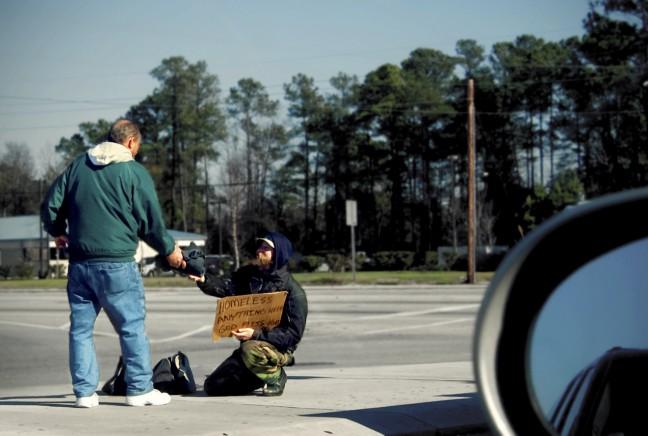Sometime in history, we decided that it was okay to look down upon those who have nothing.
Homelessness: a feature in any large city in this country. The economic recession showed us that it can appear in small towns too. Today, it seems to be all the rage to cast out the homeless as people who are there because of their own mistakes–most notably seen through how poorly pedestrians and our peers treat homeless on campus and in the City of Madison.
It is time to bleach this stain on society that is the accepted shaming of the homeless.
First, we must address the problem. Many people view the homeless as a menace to society. The problem with this is not just the bold presence of classism, but the fact that human society hasn’t civilized past the point where it needs an “other” to cast out. American society has numerous “others,” the exclusion of racial minorities, the shaming of Lesbian Gay Bisexual Transgender Queer people, to name a few. The homeless are one of these “others” but have the added misery of being extremely visible.
Instead of shaming those on the streets, we should be trying to understand why people are homeless. In an economic system where the acquisition of capital is the road to success, and where some people have a much larger amount of capital than others, it’s a given that there will be some people who have no assets. As for getting to a point where you have no assets, it could happen to anybody. Homeless people are often stereotyped as violent drug-users or alcoholics. To say that this is true of all homeless people is inaccurate. The last recession showed us that an abrupt economic change, such as a major loss of manufacturing jobs, can lead to a spike in poverty regardless of individual actions.
In terms of society’s reaction to the homeless, people have always created illusions to make life more of a happy picture. The illusion here is that if we ignore the homeless, we eventually won’t see them. We don’t want to face the realization that we live in a society with jarring gaps in wealth and quality of life. However, this leads to a morally bankrupt way of treating others. Even to be turned off by the way the homeless go about their lives is wrong.
Society is an invisible and complex institution; depending on your place within society, there are certain demands, duties and expectations you must fulfill. However, for the homeless there is a void when it comes to societal duties because they have limited assets to build upon. What we perceive as socially unacceptable behavior, like begging, is an understandable reaction to their situation because it’s unclear what a profit driven society demands from them.
The 21st century, with all its technological power to show different viewpoints, is an opportune time for humans to change the way we treat those who don’t exactly fit into the cookie-cutter of society. We see the homeless almost every day walking around campus and downtown. It’s time we show them compassion. Not because we feel sorry for them, but because we ought to give them the dignity of being recognized and being treated equally. There are valuable lessons we can learn from their experiences. Lend a hand to the next homeless person that solicits your attention instead of ignoring their existence.
Nichalous Pogorelec (pogorelec@wisc.edu) is a sophomore majoring in sociology.


